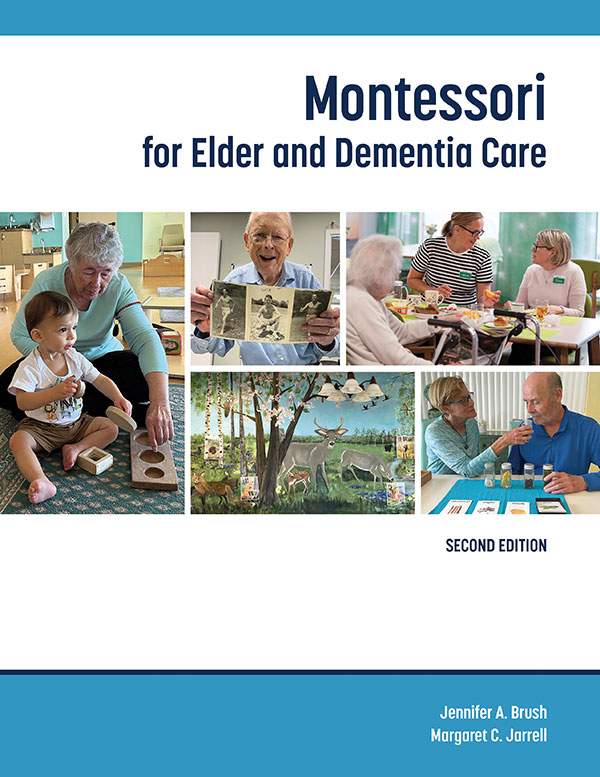Exactly How to Provide Customized and significant Mental deterioration Treatment
The arrangement of personalized and purposeful dementia care calls for a nuanced understanding of each individual's unique history and choices. Care methods should be tailored to engage the individual in means that resonate with their past experiences, thereby promoting psychological links and enhancing overall health. Developing trust fund via caring and regular communications is important for producing a secure and helpful environment. As we discover the details of efficient interaction and the vital function of household participation, it becomes clear that the journey toward personalized care holds both challenges and extensive incentives.
Recognizing Dementia Individuality

Treatment service providers need to evaluate cognitive abilities, moods, and behavioral patterns to produce customized care plans. This might consist of adjusting communication designs, utilizing familiar routines, and utilizing meaningful activities that reverberate with the person's previous experiences. Involving an individual with an interest for songs via music tasks may evoke favorable memories and enhance emotional health.
Furthermore, understanding individuality fosters a caring technique that respects the self-respect and freedom of those coping with mental deterioration. It urges caregivers to listen proactively, observe behavior cues, and stay flexible in their caregiving techniques (memory care facilities charlotte). By focusing on individuality, caregivers can not just boost the high quality of life for those with mental deterioration but also construct a more profound understanding of their distinct point of views, ultimately bring about a lot more reliable and compassionate treatment
Building Trust Fund and Connection
Establishing trust and relationship is basic in mental deterioration treatment, as it creates a supportive and secure setting for people impacted by the condition. Structure these connections requires constant, thoughtful interactions that prioritize the demands and sensations of the person. Caregivers must come close to interactions with compassion, acknowledging the distinct obstacles encountered by those with dementia, including amnesia, confusion, and psychological distress.
Efficient interaction is essential in this process. Caretakers need to make use of clear, simple language and non-verbal signs to communicate understanding and support. Energetic paying attention demonstrates respect and validation, allowing people to share themselves without anxiety of judgment. Additionally, preserving a tranquil temperament can help reduce stress and anxiety, promoting a complacency.
Familiarity with day-to-day tasks and caretakers promotes a feeling of security, allowing people to really feel even more at convenience. By doing so, caretakers strengthen the individual's identification, advertising dignity and respect, inevitably leading to more powerful, extra meaningful partnerships in the context of dementia care.
Tailoring Activities and Involvement
Engaging individuals with dementia through tailored activities can dramatically enhance their quality of life and promote a deeper link between caretakers and those in their care. Personalization is vital, as it acknowledges the unique backgrounds, interests, and capacities of each individual. Tasks should be developed to boost cognitive features, advertise physical activity, and motivate social interaction, all while staying enjoyable and satisfying.
To customize activities effectively, it is essential to analyze the person's preferences and cognitive capabilities. As an example, some might discover happiness in gardening, while others could appreciate songs or art. Straightforward, familiar tasks can evoke positive memories and give a feeling of success. In addition, incorporating aspects of routine can offer comfort and security, permitting individuals to involve with activities extra confidently.
Caretakers can boost involvement by participating alongside the people, cultivating an interactive and helpful setting. It is additionally vital to continue to be flexible and adaptive, readjusting tasks as required based upon the person's energy levels and state of mind. Eventually, purposeful involvement through customized activities not just uplifts individuals with mental deterioration yet additionally enhances the caretaker connection, promoting mutual enjoyment and understanding.
Effective Interaction Techniques
Reliable interaction is essential in mental deterioration care, as it cultivates a feeling of link and understanding between people and caregivers experiencing cognitive decline. Employing effective communication strategies can dramatically improve the high quality of communications and lower frustration for both celebrations.
First of all, using straightforward, clear language is vital. Short sentences and acquainted words assist people understand and react much better. In addition, keeping a tranquility and positive tone can create a comforting atmosphere, which is essential for individuals who may really feel distressed or confused.
Non-verbal communication plays a significant function. Caretakers should pay attention to body language, face expressions, and motions, as these signs can frequently share more than words - memory care facilities charlotte. Establishing eye get in touch with and making use of gentle touch can additionally strengthen links and share compassion
Energetic listening is another essential component. Caretakers need to listen, allowing people to reveal themselves totally, also if their speech is uncertain navigate to these guys or fragmented. This lionizes and encourages extra open communication.
Lastly, verifying experiences and feelings is important. Recognizing emotions, no matter their basis actually, can provide convenience and strengthen the caregiver-individual relationship, promoting an extra supportive ambience.
Supporting Household Participation
Family members involvement plays a considerable role in the overall care and assistance of individuals with dementia. Engaging member of the family produces a collaborative environment that improves the high quality of care, fosters psychological connections, and makes certain that the special needs of the person are met. Family participants frequently have invaluable insights right into the individual's history, preferences, and behaviors, which can be critical in creating customized care strategies.

In addition, relative can be motivated to participate in daily care tasks, such as engaging in purposeful discussions or assisting with familiar regimens. This not only assists suffer the individual's sense of identity yet also enhances domestic bonds. Eventually, by cultivating a comprehensive technique that values family members contributions, care service providers can boost the total experience for both individuals with dementia and their liked ones.
Verdict
In final browse this site thought, delivering significant and personalized mental deterioration care requires a comprehensive understanding of each person's one-of-a-kind background and choices. Collectively, these methods add to enhanced quality of life for individuals with mental deterioration.
The provision of individualized and purposeful dementia care requires a nuanced understanding of each person's one-of-a-kind background and choices. By doing so, caretakers reinforce the individual's identity, advertising self-respect and regard, inevitably leading to stronger, more meaningful connections in the context of dementia treatment.
Involving people with mental deterioration via tailored tasks can significantly boost their top quality of life and foster a reference much deeper link between caregivers and those in their care.Family members participation plays a considerable role in the general care and support of people with mental deterioration. Ultimately, by fostering a comprehensive strategy that values household contributions, treatment providers can improve the overall experience for both people with dementia and their enjoyed ones.
Comments on “Choosing the Perfect Charlotte Care Home: Trick Elements to Consider for Your Family”